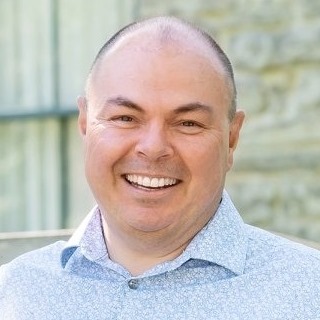Kinburn PSW worker says agencies compromising client safety
KINBURN – Private personal support worker (PSW) Patrick Garbutt says the agency workers coming in to his client’s homes don’t have the proper safety equipment needed to protect everyone from COVID-19 spread.
Kinburn’s Garbutt, whose clients are in West Carleton, is a fully insured private personal care worker with 24 years of experience in child, dementia and palliative care as well as chronic illness and developmental disabilities. Some of the services he provides includes personal care – bathing, toileting, transfers and medication administration, cooking, light housekeeping and transport. His business is known as Dignity at Home. PSWs are considered an essential service during the COVID-19 pandemic.

“My main goal is to assist people to succeed in their own home, with dignity,” Garbutt told West Carleton Online Saturday (March 30). “I work as a private PSW and I have serious concerns about protecting my full-time clients with regards to homecare coming in to the home to assist with care.”
Garbutt says two to three agency PSWs and sometimes as many as five a day, contracted by the Local Health Integration Network (LHIN), visit his clients each day, and none of them have the proper personal protection equipment (PPE).
Currently Garbutt has one full-time client and a part-time client. For his full-time client, Garbutt is there in the early morning, preparing all three meals as well as providing personal care throughout the day.
“They have a couple of agency workers who come in and out all day long,” Garbutt said. “A whole bunch of different ones contracted by the LHIN.”
And they are not wearing N95 masks. Garbutt says they do wear masks, but the masks they wear are not designed to prevent virus transmission. They are more of the typical masks you see at the hospital – loose fitting, cloth-like masks.
“They do not have a tight enough seal,” Garbutt said. “They are designed to vent air out the sides. Moisture compromises them. They are only supposed to be good for 15 minutes.”
Garbutt says he has a process for all agency PSWs who enter his clients’ homes including removing outerwear and shoes and hand sanitizing before coming in. Then going straight to the sink for a hand wash. But he is concerned with the fact neither he nor his clients know where the agency PSWs are working all day.
“Most of these people coming in have three or four other patients,” Garbutt said. “We don’t know where else they are visiting.”
Garbutt says when he asks them to wear the proper PPEs when coming in, they refuse.
“We have asked homecare to wear a mask for the protection of my clients, and their response was they could not do that,” Garbutt said. “These agency workers are going in to several homes a day and they are doing nothing to protect the most vulnerable at a critical time. We don’t know where these agency workers are. We would prefer they would wear these N95 masks. They tell me they’re being told to ration by their agencies. I believe them.”
It also puts Garbutt and his loved ones at risk. Garbutt says he has sealed off his home. His two sons have been laid off due to the coronavirus and his partner Tim St-Jean works for the government and is able to work from home.
“When those agency workers come in, they are exposing me as well,” Garbutt said. “We’ve been able to seal the home really well with me and the family. We are secure in our environment in strict isolation, but it is breached by home care workers who work by the creed of ‘do no harm’.”
While PPEs are in scarce supply these days, Garbutt says PSWs are essential workers during the pandemic and deserve to work in a safe environment.
“I’m struggling to find PPEs for myself,” Garbutt said. “These agencies have a responsibility to their employees and their clients/patients to practice safe methods in caregiving. Scary times for me as a frontline caregiver, it breeches my home safety and family to unnecessary risk that can be minimized.”



